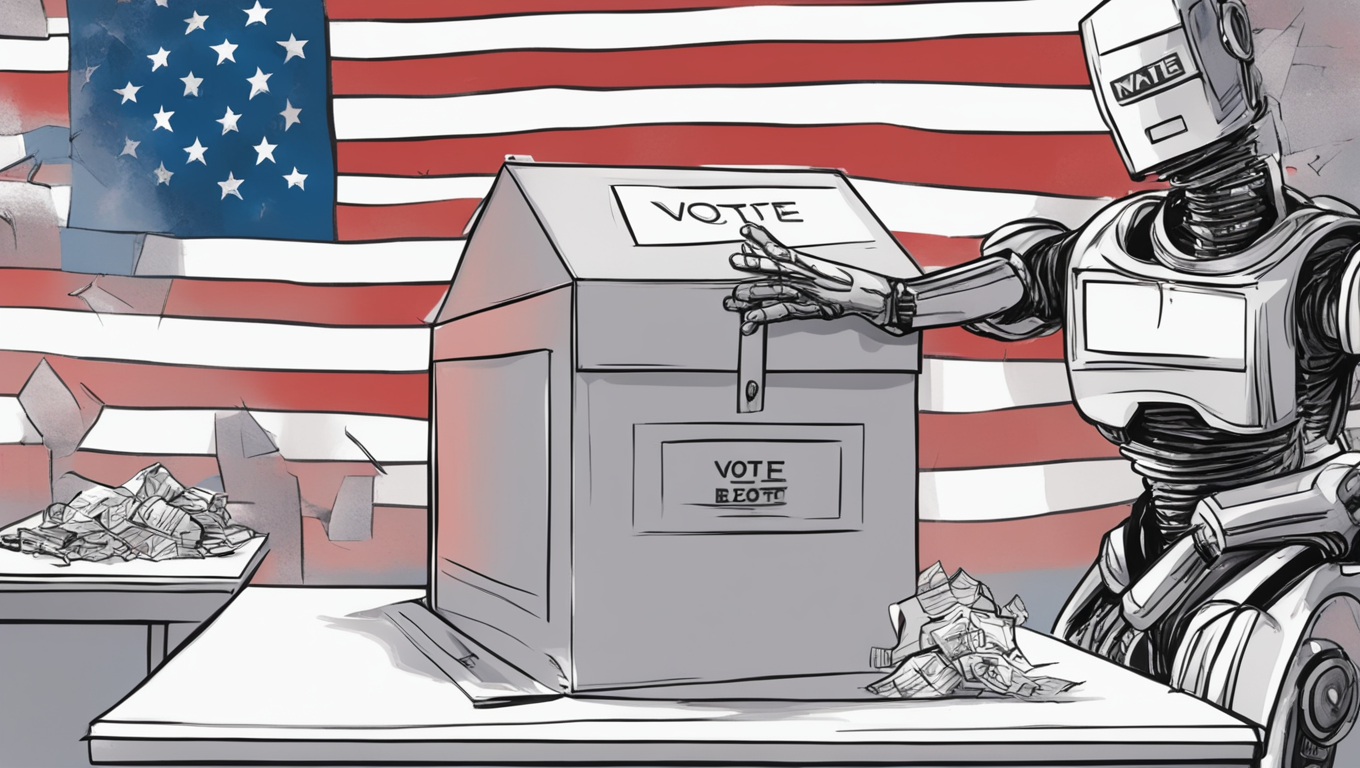The 2024 U.S. presidential election has raised important questions about the role of artificial intelligence (AI) in shaping public perception and the battle against misinformation. Experts have gathered at a recent summit in London to discuss the impact of AI on politics, with some believing that AI-generated content played a significant role in shaping narratives.
Professor Elizabeth Dubois from the University of Ottawa highlighted how new technologies, including AI and social media platforms, can influence electoral systems. Notably, figures like Elon Musk and platforms like X (formerly Twitter) have been involved in spreading conspiracies about political figures such as Trump and Harris. For example, Musk shared a manipulated video on X in July 2024, which used AI to mimic Harris’s voice in a campaign ad. The video has raised concerns about the potential for AI to spread misinformation in politics.
Former president Trump also shared a fabricated image on his social media platform, Truth Social, falsely depicting Taylor Swift endorsing him for the election. This image was created using AI and showed Swift wearing patriotic attire, despite her known support for Democratic candidates. While these specific AI-generated materials have been rapidly removed from social media platforms, their impact on election integrity raises important questions.
Newsweek sought expert opinions on the evolving risks posed by AI technologies in shaping public perception. Marsha Barber, a professor of journalism, expressed concerns about the way AI algorithms manipulate social media, creating echo chambers that reinforce readers' biases and fears. This can lead to a less informed public and undermine the democratic process.
Andrew Selepak, a media production and technology expert, believes that AI had little impact on the 2024 election in terms of AI-generated content. However, AI did play an important role in allowing campaigns to engage in social listening, summarize news content, and create social media and email messages quickly and cheaply. While AI may not have had a significant impact on the election outcome itself, it certainly made the campaign process more efficient.
Looking ahead, Darren W. Davis, a political science professor, believes that future elections may see a greater influence of AI technology as it becomes more widespread and easier to use. This presents an opportunity for tech companies, the media, the government, and voters to prepare for the future and protect the integrity of elections.
Anne Danehy, an academic affairs expert, highlights the influence of AI in creating fake accounts and amplifying extreme views on social media. Bots powered by AI can imitate human behavior, interacting and spreading disinformation that can influence public opinion. She also notes that the ability to create convincing deepfakes allows for the rapid spread of false information. The manipulation of individuals' personal data for microtargeting also contributes to the polarization of voters' beliefs and actions.
Susan Ohmer, a media and elections expert, emphasizes the need for stricter regulation and public education to identify and assess deepfakes. Social media companies must consistently uphold their own standards, but the challenge lies in educating the public on recognizing and analyzing these new political players.
While there is still much to learn about the extent of AI’s impact on the 2024 U.S. presidential election, the discussions among experts highlight the need for vigilance in safeguarding democracy from the potential risks and abuses of AI technologies. As AI continues to advance, it is crucial that society adapts and equips itself to navigate the complex landscape of AI-generated content and its implications for public perception and electoral processes.





Use the share button below if you liked it.